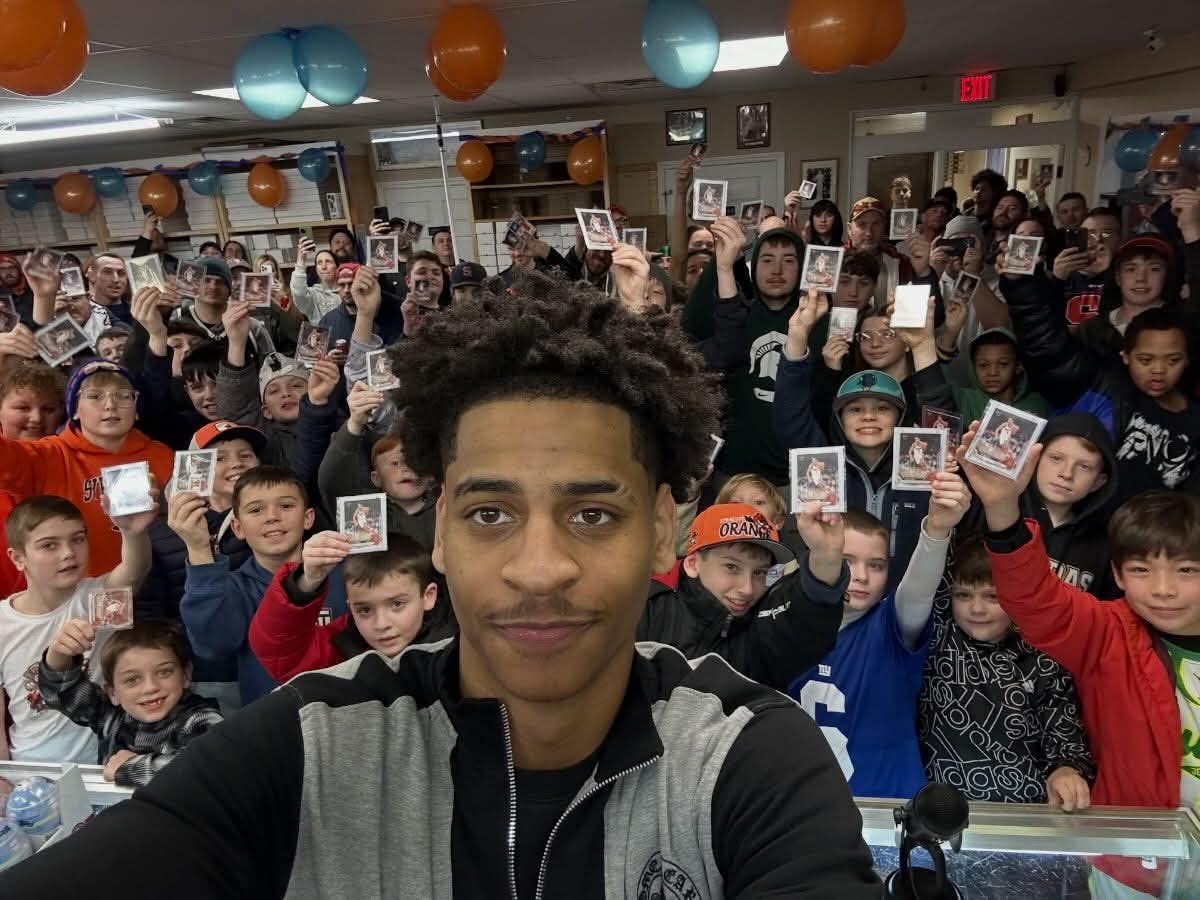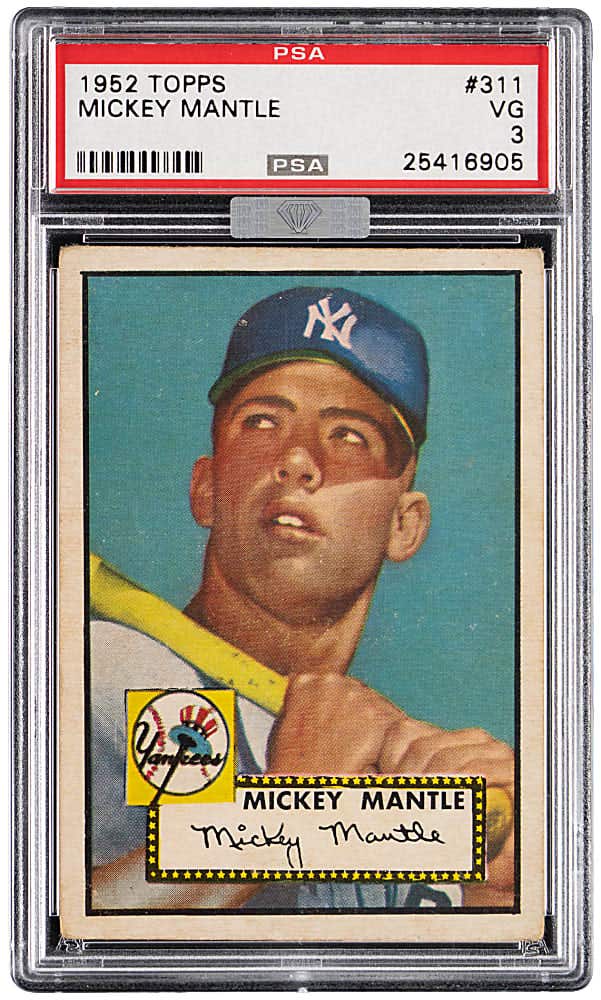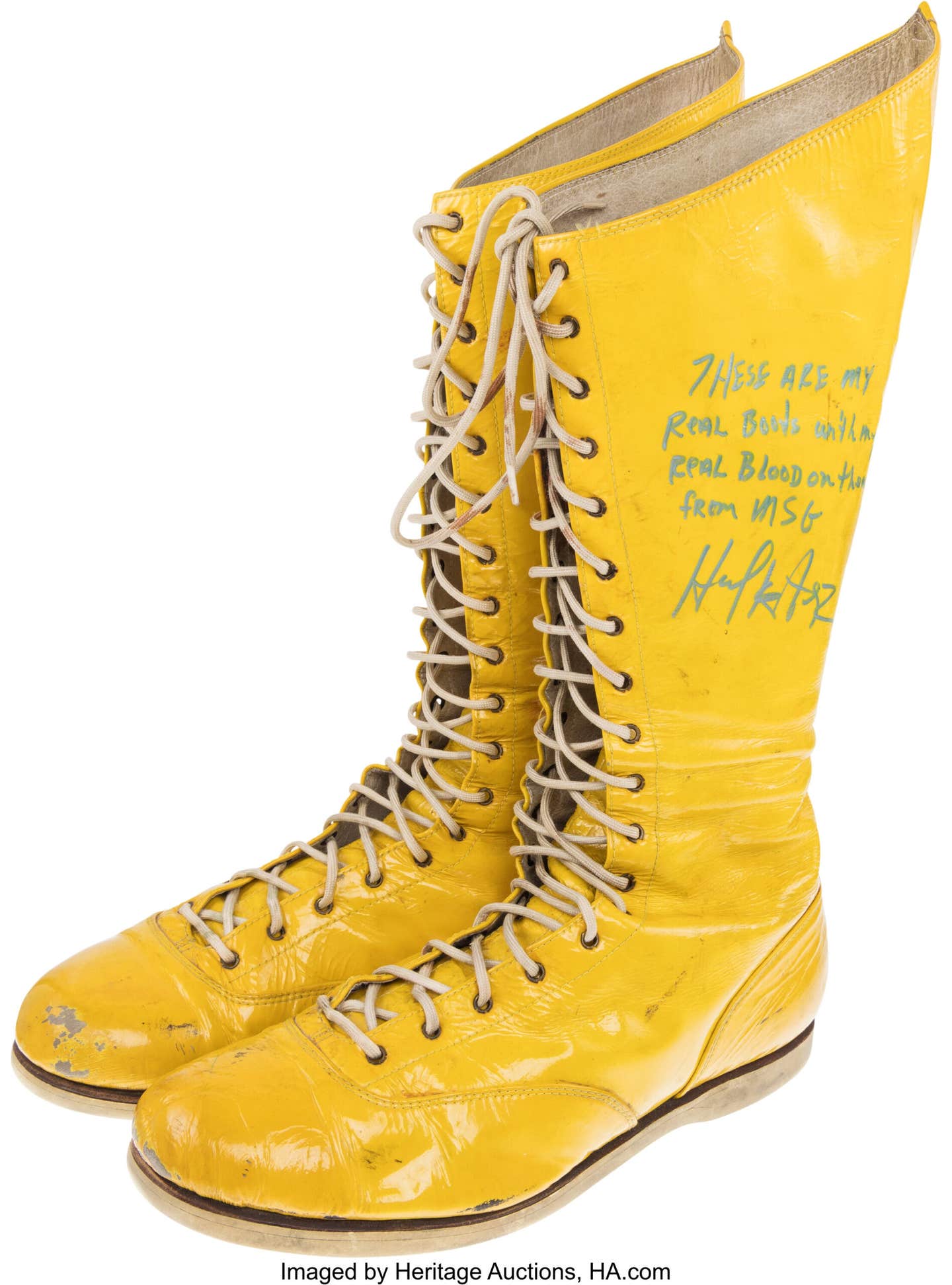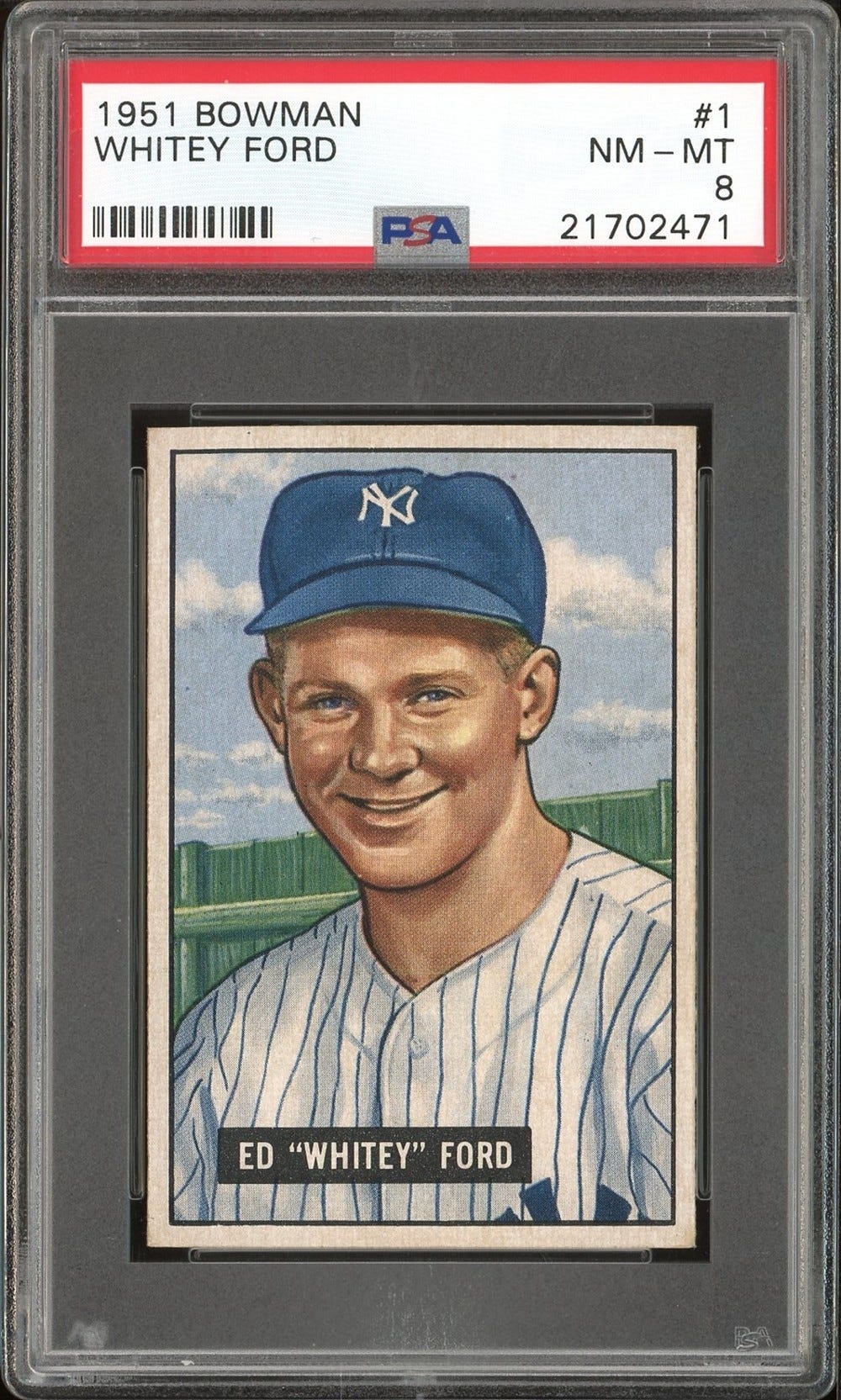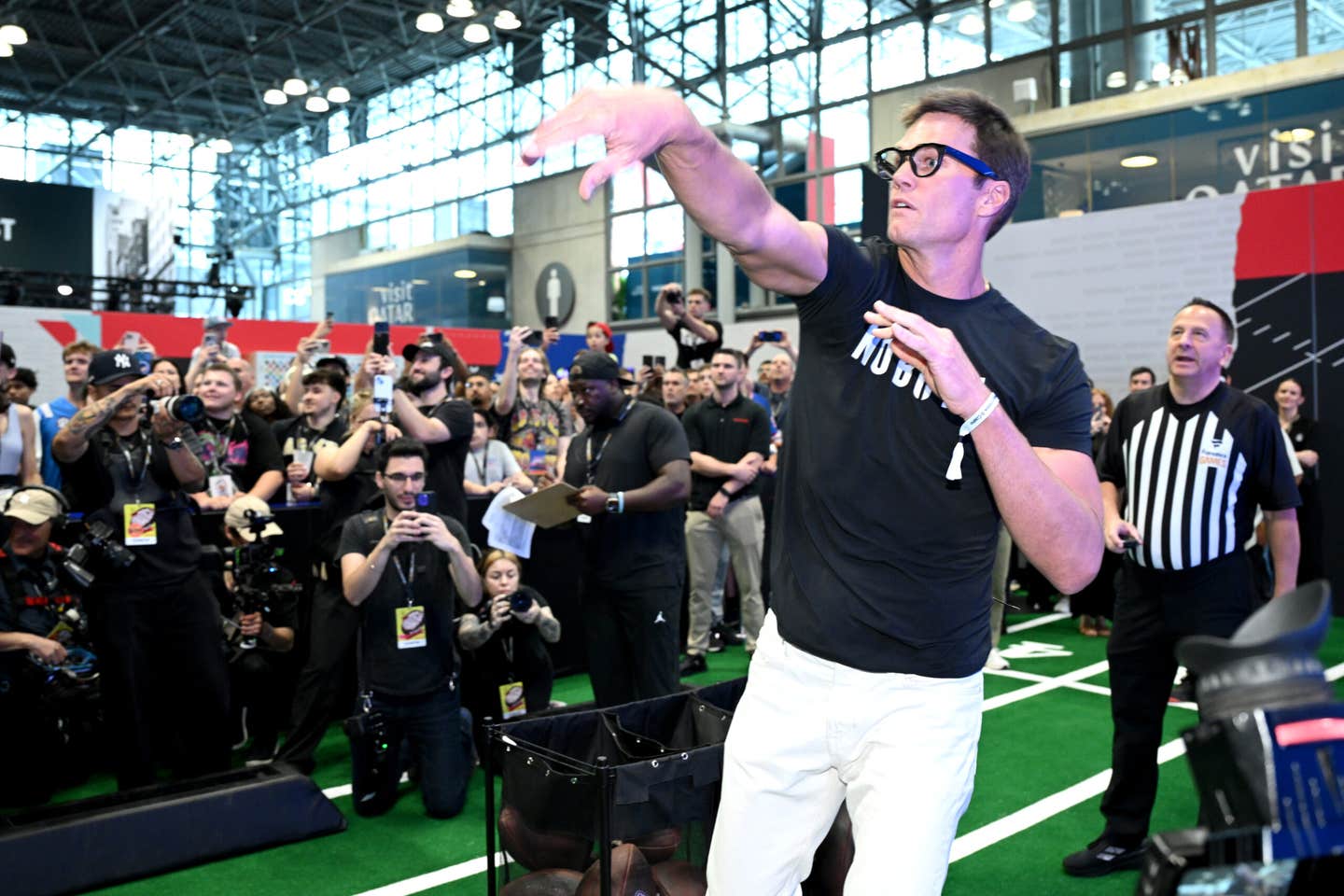Cards
Longtime promoter turns Las Vegas show into popular event as Front Row Card Show expands throughout West Coast
Dan Bliss, co-owner of Front Row Card Show, is the ultimate promoter. Bliss has his hands in multiple businesses, including promoting card shows across a half-dozen markets on the West Coast.
Together with Angela, his wife and business partner at Front Row, they have quickly become one of the hobby’s biggest card show promoters, staging events in such popular destinations as Las Vegas, Pasadena and San Diego, Calif., Phoenix, Seattle-Tacoma, and Portland.
The Bliss family books two shows a month among the six markets. The Vegas show, which took place Nov. 8-9 at the Rio Hotel & Casino, featured 600 tables.
Related Content:
Next year, Front Row Card Show expands its reach to Atlanta and Orlando. The Atlanta event is set for March 28-29 at Cobb Galleria. The venue and dates for Orlando have not been confirmed yet, Bliss said.
In a past life, Bliss served as a concert promoter in Cleveland before running conferences for billionaires Richard Branson (Virginia), Tony Hsieh (Zappos) and global investor Tim Draper, connecting them to other venture capitalists. Bliss also dabbles in real estate, recently building a Raising Cane’s chicken restaurant in Las Vegas, tied to one of the hottest brands in the QRS sector in the city where they have resided the past seven years.
Front Row Card Show is their primary business. The company has been in existence for about five years and the Bliss couple have seen it grow rapidly since their first show took place in Vegas on Super Bowl weekend in February 2022.
The company’s quick growth is not surprising, according to Dan. He and Angela moved to Los Angeles in 2001 from Cleveland, where he grew up. Along the way, they saw a void on the West Coast with card shows and thought it would be fun to gain a foothold in that part of the country. It started with Vegas, where there were some smaller shows held at malls but nothing of significance, Bliss said.
“We started small with 65 tables at our first show,” he said. “We grew really fast with big crowds that were beyond our expectations, mostly because people wanted to see a big show in Vegas and it happened organically. We grew to 110 tables, then 150 tables. It kept growing, and now at 600 tables, it’s almost 10 times the size from when we started.”
From there, they expanded to Pasadena in November 2023 after hearing from vendors and collectors that there were no decent card shows in Greater Los Angeles. Front Row Card Show events are now the biggest in LA with 530 tables. Bliss has promotional video of lines wrapping around the exterior of Pasadena Convention Center, where the show now fills the facility’s two biggest exhibit halls, totaling 53,200 square feet.
The Nov. 22-23 show in Pasadena represents the ninth Front Row Card production in that city.
It’s resulted in a nice piece of business for the Pasadena Convention Center over the past two years, said Michael Ross, CEO of the complex.
“It just kind of exploded,” Ross said. “[Bliss] does a great job. If it keeps growing, it will take over the ballroom, which is another 25,000 square feet. We’re a perfect spot for those types of shows. Events like his do real well for us, filling a niche. Every time he’s in our building, it seems to get bigger.”
Bliss got an early start running card shows. As a teenager, he bought and sold cards and organized some shows in the late 1980s and early ’90s to help pay his way through college at Ohio State University.
After graduation in 1992, he gravitated to live music. At one time, he owned a pair of clubs in Cleveland, Peabody’s and the Euclid Tavern. For six years, he promoted 2,100 concerts, booking many national acts such as The Wallflowers, No Doubt, Creed, Kid Rock, Garbage, Natalie Merchant, Semisonic, Third Eye Blind and The Offspring.
A big part of what Bliss did was help develop up-and-coming acts at smaller rooms before they grew up to play bigger venues. Over time, Bliss got burned out from the long hours and late nights spent running the two clubs.
“In part, I was overworked,” he said. “I was really ambitious in my 20s and worked hard, non-stop. If you have any idea how [difficult] it is to promote 2,000-plus concerts, it’s grueling.”
The move out west coincided with Bliss' decision to return to the trading card biz. He always had a card collection, although it waned a bit since he wasn’t actively involved in it. Ten years ago, he got back into the hobby due to the “soft spot in his heart” for sports cards. His experience as a concert promoter transcended to card shows in terms of marketing those events and providing first-class customer service.
“When I got back into it more thoroughly, I focused on vintage cards,” he said. “I’m actually a vendor at every one of our shows. That’s the beauty of my wife being my partner in this business. She manages the shows and I get to be a vendor. We work on everything to put it together in advance. The day of the show, she runs it and I get to buy and sell cards, which I love. There’s a lot of vendors that do our show that don’t even know me because they deal with Angela. She’s the heartbeat of our shows.”
Overall, the card market is strong out West, Bliss said. They have some big deals take place at their events, but Dan and Angela take pride in providing opportunities for smaller collectors to do business as well.
“It’s not always the $10,000 to $20,000 deals that happen,” he said. “It’s the $10 to $50 deals and people fishing through bargain bins for $1. That’s part of the hobby. One of the things you don’t get online is the an ability to do that and you’ve got to pay for shipping if you’re buying things on eBay.”
The private equity firms and independently wealthy individuals purchasing cards in seven-figure deals has helped drive the thriving market, supported by the grading services that add legitimacy to the industry, Bliss said.
“It’s shortened the playing field and reduced the learning curve for people who want to invest in the hobby,” he said. “On vintage cards, eye appeal does add an extra level of value, so there’s nuances of quality within each grade, which allows for [greater investment]. With modern cards, there’s a lot of speculation. It’s a much steeper roller coaster these days than it used to be.”
In Tacoma, Bliss recently sold a Tony Gwynn rookie card for $10. There was really nothing wrong with the card. It wasn’t perfect, though, so Bliss didn’t bother grading it. He said it’s hard to believe that a card for one of the greatest hitters of all time and a Baseball Hall of Famer sells for a bargain price, but it’s just another example of the 1980s junk wax era, similar to Ryne Sandberg, another Hall of Famer.
“Once upon a time, a hot player might be Gregg Jefferies or Jerome Walton. Those [rookie] cards might go up to $20 and that’s it. Now, you get a hot rookie card and its value is thousands of dollars,” he said.
Don Muret



